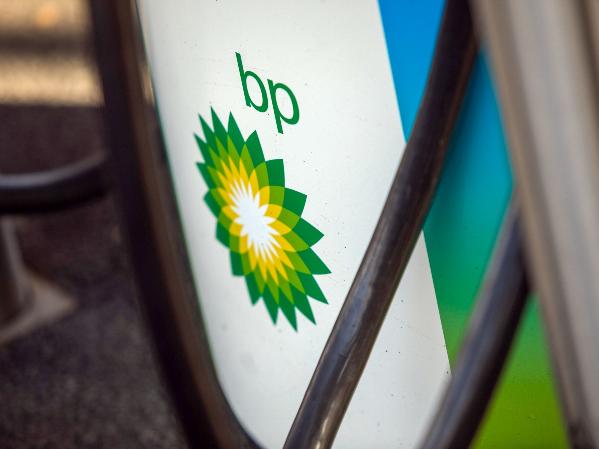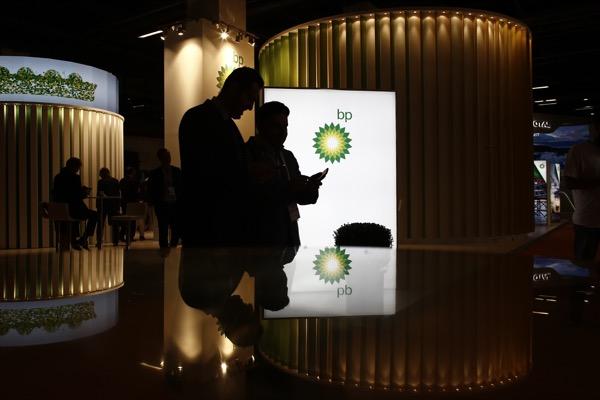Is the BP share price dip an excellent FTSE 100 opportunity?
BP shares have fallen sharply in recent days as the FTSE 100 oil major recalibrates its investments.

Source: Bloomberg
BP's (LON: BP) share price has fallen by 9% in just five days. But while this steep fall appears worrying, BP shares are also up 19% over the past year. By comparison, the FTSE 100 has remained essentially flat.
While this volatility is partially down to the sliding value of Brent Crude, and fears of an upcoming global recession, investors are also reassessing the FTSE 100 oil major’s prospects.
BP share price: oil changes
In November, CEO Bernard Looney famously proclaimed BP a ‘cash machine,’ at a time when Brent Crude was trading at $74. Accordingly, 2021 full-year profits struck an eight-year high of $12.8 billion, while Q1 2022 underlying profits more than doubled to $6.2 billion as Brent hit multi-year highs.
Of course, oil prices are unlikely to remain this high forever. Longview Economics thinks that ‘if oil prices remain at current levels, there will be a significant supply response over the coming 12-18 months which will generate a global supply surplus /rising oil inventories in 2023.’
But with bumper profits, BP plans to spend 60% of the excess on share buybacks while average energy bills are expected to close on £3,000 by autumn.
Accordingly, Chancellor Rishi Sunak has announced an additional 25% ‘energy profits levy’ on North Sea gas and oil operators, until ‘normal’ prices return or until the end of 2025. However, he included a ‘super-deduction’ from this additional tax, worth 91p on every £1 of investments in the North Sea.
Linda Cook, CEO of Harbour Energy, the biggest oil and gas producer in the North Sea, has criticised the windfall tax as ‘seriously flawed,’ as it is ‘disproportionately large compared with the projected impact on major oil companies such as BP and Shell.’
But Looney has also been critical, arguing that it ‘is not for a one-off tax – it’s a multi-year proposal. Naturally, we will now need to look at the impact of both the new levy and the tax relief on our North Sea investment plans.’
BP was planning to invest £18 billion into the UK over the next eight years, despite not having opened an exploratory well since 2018.

Source: Bloomberg
The FTSE 100 operator has also taken a $24.4 billion hit from exiting its 19.75% stake in Rosneft. A third of BP’s oil came from Russia last year, as well as a significant chunk of its income.
BP has also quit the Canadian oil sands, after selling its 50% stake in the Sunrise project to Cenovus Energy in a $1 billion deal, which will also see BP receive acreage off the east coast of Canada to explore and develop new oil and gas fields.
BP explained the deal ‘will shift its focus to future potential offshore growth,’ while Starlee Sykes, senior vice-president of the Gulf of Mexico and Canada, argues it ‘will position BP Canada for strong future growth.’
Exploratory drilling will last until 2026, with strong demand likely from both Canada and the USA as Russian oil remains off the market.
FTSE 100 stock: renewable plans
While rapidly changing its oil-producing mix, BP has a long-term ambition to hit net zero by 2050. Accordingly, it’s agreed to buy a 40.5% stake in the 6,500 square kilometre Asian Renewable Energy Hub in Pilbara, Western Australia, for an undisclosed sum.
The project, which will cost more than $30 billion to develop, counts Intercontinental Energy, CWP Global and Macquarie as partners. BP argues it has ‘the potential to be one of the largest renewables and green hydrogen hubs in the world,’ hoping to develop 26GW of solar and wind power and 1.6 million tonnes of green hydrogen a year.
Executive vice-president of gas and low-carbon energy Anja-Isabel Dotzenrath contends that ‘AREH can be a cornerstone project for us in helping our local and global customers and partners in meeting their net zero and energy commitments.’
And encouragingly, the VP expects it to represent ‘a material contribution’ to BP’s plans to corner 10% of the global hydrogen market. The FTSE 100 company projects that low-carbon hydrogen will make up 15% of the global energy mix by 2050, and will account for 40% of BP’s capital expenditure by 2030.
The oil major will become the development’s operator from 1 July, subject to Australian regulatory approval.
The FTSE 100 supermajor has also appointed veteran Felipe Arbelaez to lead its new hydrogen unit, which plans to take on 100 more employees through 2022.
Arbelaez thinks ‘the desire to progress the hydrogen market is really accelerating across all nations and particularly in Europe, Asia and the United States,’ augmented by the wish for ‘security of supply of energy, particularly in the European context on the back of the Ukrainian conflict.’
This leaves BP’s share price dip as a potential FTSE 100 buying opportunity.
Charles Archer | Financial Writer, London
23 June 2022






0 Comments
Recommended Comments
There are no comments to display.
Create an account or sign in to comment
You need to be a member in order to leave a comment
Create an account
Sign up for a new account in our community. It's easy!
Register a new accountSign in
Already have an account? Sign in here.
Sign In Now